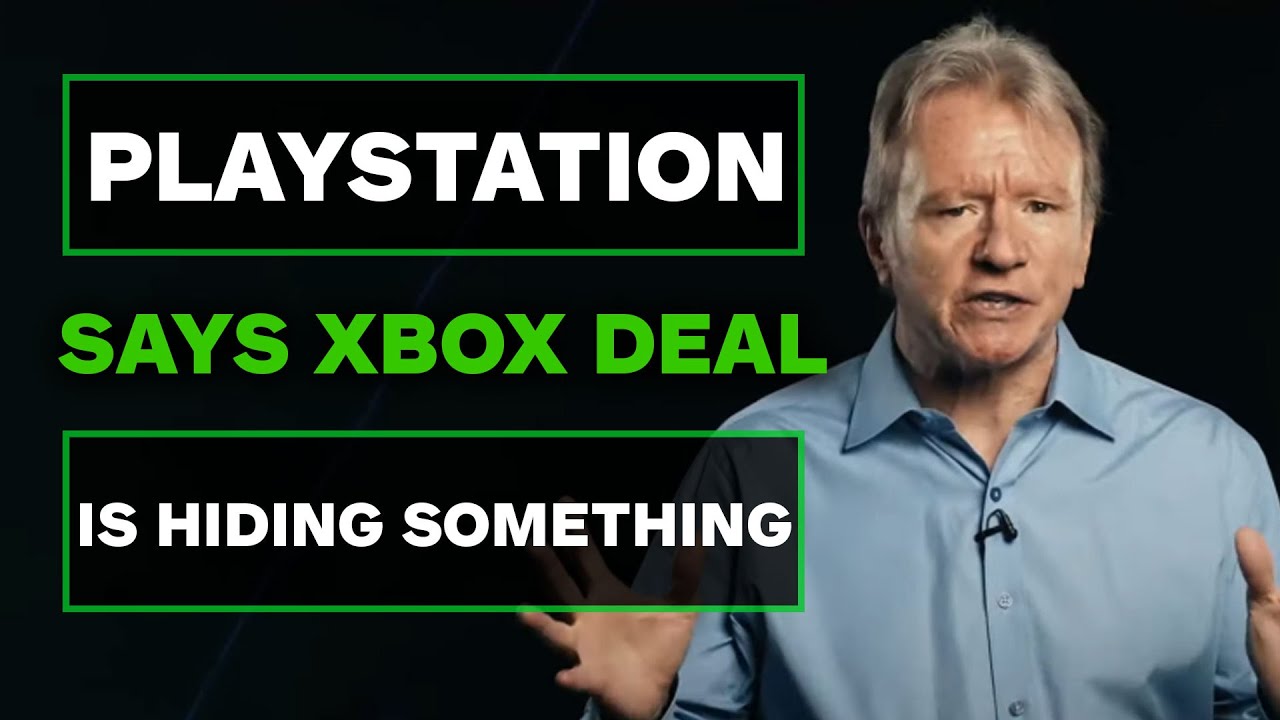Playstation Claims The Xbox Offer Will Harm The Industry
Unleash Your Creative Genius with MuseMind: Your AI-Powered Content Creation Copilot. Try now! 🚀
Sony recently expressed concern that the Activision Blizzard deal could irreparably harm competition and innovation in the industry. While some may view this claim skeptically, it raises important questions about the future of gaming and how businesses will operate in the near future.
The story originally surfaced on gamesindustry.biz, and Sony's response to the UK regulator's observations caught the attention of many. The documents submitted by both Sony and Microsoft contained redactions, which led to speculation that something was being concealed. However, it's worth noting that Sony also redacts information in their documentation, even in cases like the Epic versus Apple battle.
It's clear that both Sony and Microsoft engage in redactions to protect sensitive information. So, calling out the redacted documents as evidence of wrongdoing seems hypocritical. Moreover, other companies have reportedly seen Microsoft's Call of Duty offer and have shown enthusiasm. It's intriguing that Sony is the sole company that objects to the deal, claiming that it will harm the industry.
Furthermore, Sony's claim that Microsoft lacks commitment to reaching a negotiated outcome is questionable. Jim Ryan, Sony's CEO, stated that he didn't want a new Call of Duty deal but instead wanted to block the merger. This statement instantly diminishes Sony's credibility in their pushback against Microsoft. On the other hand, companies like Nvidia and Nintendo have managed to reach agreements with Microsoft, suggesting that negotiation is possible.
Sony's response to Microsoft's Call of Duty offer accuses it of lacking commitment to ensuring full and equal access to the game. However, it's important to analyze this claim critically. Microsoft's offer to provide Call of Duty releases on PlayStation aligns with Sony's desire for exclusivity. But with the industry shifting towards a more inclusive playing field, Sony's expectation for the continuation of exclusive betas and skins is becoming outdated.
Sony's objections to Microsoft's proposal also criticize its lack of commitment to parity. However, Microsoft has made repeated public utterances regarding its commitment to parity between PlayStation and Xbox. It seems that Sony is looking for a legally hard-edged and enforceable commitment, but such a demand appears unreasonable in the changing landscape of the gaming industry.
Another point of contention for Sony is Microsoft's proposal's pricing structure. Sony argues that it gives Microsoft a lever to fix the PlayStation retail price of Call of Duty and soften competition against Xbox, thereby reducing competition between the two platforms. However, the proposal seeks to establish a uniform pricing structure across all platforms, creating a level playing field for consumers.
In summary, Sony's concerns about the Activision Blizzard deal reflect a resistance to change in the gaming industry. While they may have valid worries about the future competitiveness of PlayStation, it's important to consider the broader implications of their pushback. The gaming landscape is evolving, and it's crucial for businesses to adapt to new paradigms and embrace inclusivity. As the industry evolves, exclusive deals and other practices may become less sustainable, and a more open playing field may lead to greater competition and innovation.
Ultimately, the success of any deal lies in the hands of regulators and the gaming community. It's vital for all parties involved to engage in constructive dialogue and find common ground to shape a future that benefits both businesses and gamers. The gaming industry thrives on innovation and competition, and it's through collective efforts that we can ensure its continued growth and success.
